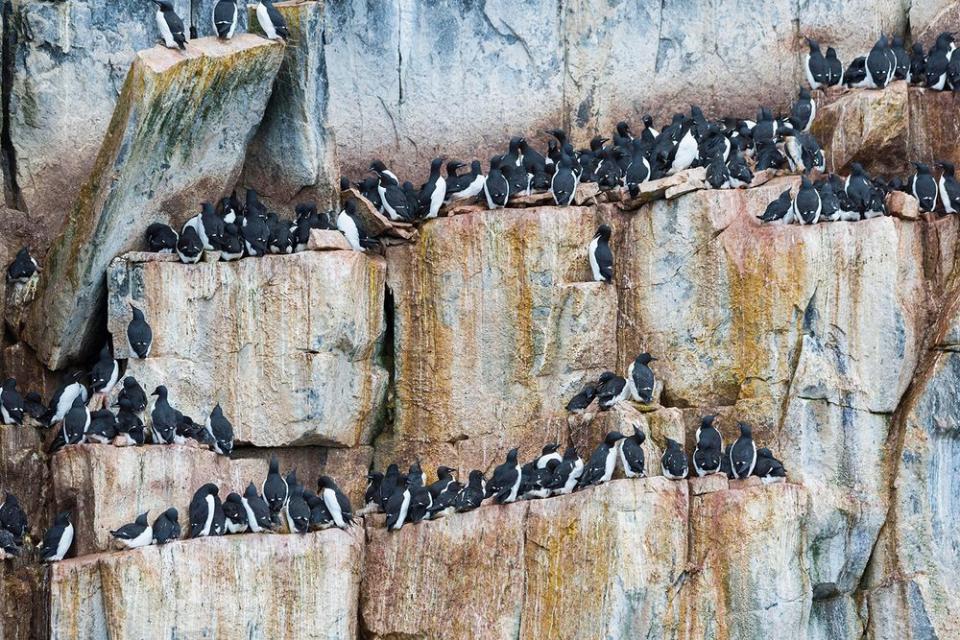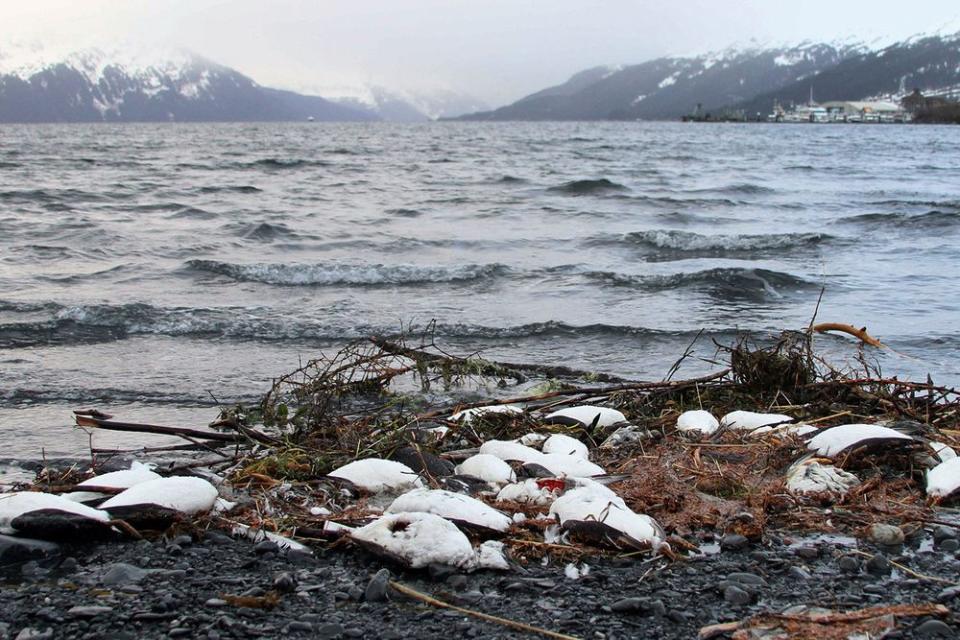1,000-Mile Long Blob of Hot Water in Pacific Ocean Killed a Million Seabirds, New Study Finds
Scientists have discovered the cause behind the death of nearly a million seabirds in less than 12 months — an extremely large section of hot water in the Pacific Ocean called “the Blob.”
According to a study published in Plos One journal this week, University of Washington researchers found that a years-long heatwave, which began in 2013, created a 1,000-mile “blob” of warm water 3 to 6 degrees higher than the rest of the ocean.
This rise in temperature caused the fish-eating seabird species, called the common murre, to likely die of starvation between the summer of 2015 and spring of 2016 because the warmer water was killing off their food supply, scientists explained.
The species appeared to be malnourished as the Blob caused “an increase in competition for a dwindling supply of forage.” Many predatory fish like salmon, cod and halibut, were also going after the same small amount of prey — creating an even shorter food supply for both species.

Additionally, the warming water halted the production of microscopic algae, another food source for animals, and created harmful algae that killed off many other species.
RELATED: Giant Chinese Paddlefish That Survived 150 Million Years Declared Extinct, Scientists Say
During this warming period, an estimated 62,000 deceased or dying murres washed up on the shores along North America’s west coast, with the highest number of birds found in Prince William Sound, Alaska.

The study also found that as the murres population was decreasing, so was their ability to reproduce. In 2016, twelve colonies didn’t produce a single murre during their breeding season.
Scientists also added that “in light of predicted global warming trends and the associated likelihood of more frequent heatwaves,” the murre population may never be able to completely recover.
RELATED: Ecologists Worry Wildlife Has a ‘Bleak Future’ as Australia Fires Propel Extinction Crisis
“The magnitude and scale of this failure has no precedent,” said lead researcher John Piatt in a press release. “It was astonishing and alarming, and a red-flag warning about the tremendous impact sustained ocean warming can have on the marine ecosystem.”

